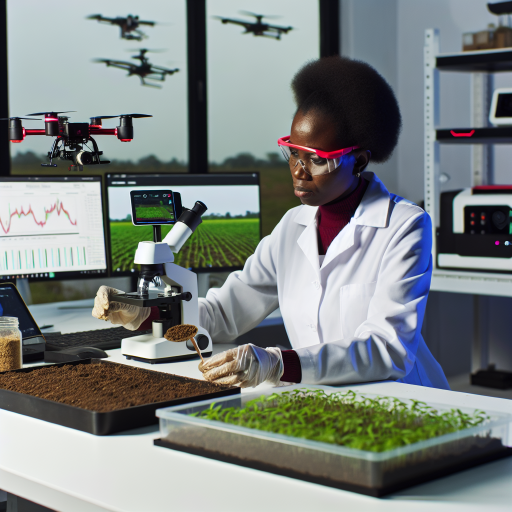Internship Opportunities for Animal Science Students
Internships provide invaluable practical experience for animal science students looking to kickstart their careers in the field.
By gaining real-world exposure, students can apply their academic knowledge to hands-on situations and bridge the gap between theory and practice.
Importance of Gaining Practical Experience
Internships allow students to work alongside professionals in the industry, giving them insight into daily tasks, challenges, and best practices.
This firsthand experience enhances their understanding of the field and prepares them for future roles.
Benefits of Internships
Networking opportunities abound during internships, as students interact with industry experts and build connections that can lead to future job prospects.
Additionally, interns develop essential skills such as problem-solving, teamwork, and communication, which are crucial for success in their careers.
Internships also provide a platform for career advancement, allowing students to demonstrate their capabilities and passion for animal science to potential employers.
Many companies view internship programs as a pipeline for recruiting top talent, making internships a valuable stepping stone towards securing a full-time position in the industry.
Overview of Animal Science Internships:
Animal science internships provide valuable hands-on experience for students interested in pursuing a career in animal-related fields.
These internships allow students to apply classroom knowledge to real-world settings.
Students can gain practical skills and make professional connections in the industry.
- Animal science internships involve working with various animals in different settings, such as research facilities, farms, zoos, and veterinary clinics.
- Students may engage in tasks like animal care, research projects, data collection, feeding, grooming, and assisting veterinarians.
- Interns typically work under the supervision of experienced professionals who provide guidance and mentorship throughout the internship period.
Types of Internships Available:
- Research Internships: These internships focus on conducting research studies related to animal behavior, genetics, nutrition, or reproduction.
- Farm Internships: Students get hands-on experience in livestock management, animal husbandry, dairy production, and crop production on farms.
- Veterinary Internships: These internships involve shadowing veterinarians, assisting in surgeries, administering medications, and providing care for sick or injured animals.
Duration and Locations:
- Internship durations vary depending on the organization or program, ranging from a few weeks to several months during summer or semester breaks.
- Students can find internship opportunities at universities, research institutions, government agencies, non-profit organizations, farms, zoos, wildlife sanctuaries, and veterinary clinics.
- Popular locations for animal science internships include agricultural regions, animal conservation centers, urban veterinary clinics, and wildlife rehabilitation facilities.
Animal science internships offer students a unique opportunity to explore different career paths.
They can develop essential skills and network with professionals in the field.
By actively participating in internships, students can enhance their resumes and increase their chances of securing employment after graduation.
These experiences allow students to make meaningful contributions to the field of animal science.
How to Find Animal Science Internships:
Utilize university career centers for internship postings and resources.
Check online job boards specific to animal science or agriculture.
Attend industry events and job fairs to network with potential internship providers.
Networking Strategies:
Join professional organizations related to animal science for networking opportunities.
Attend conferences, seminars, and workshops to connect with industry professionals.
Utilize social media platforms like LinkedIn to network and find internship opportunities.
Importance of a Strong Resume and Cover Letter:
Highlight relevant coursework, research experience, and skills in your resume.
Craft a tailored cover letter expressing your passion for animal science and the internship.
Showcase any relevant work experience, volunteer work, or extracurricular activities related to animal science.
By following these tips and strategies, animal science students can increase their chances of securing valuable internship opportunities in the field.
Remember to stay proactive, network effectively, and showcase your passion for animal science in your application materials.
Good luck in your search for the perfect animal science internship!
Find Out More: Bioinformatics Conferences and Workshops in Nigeria
Benefits of Animal Science Internships:
Internships provide valuable opportunities for animal science students to bridge the gap between theoretical classroom learning and real-world applications.
Here are some ways in which internships benefit students:
- Application of classroom knowledge: Internships enable students to apply the theoretical concepts they learn in the classroom to real-world scenarios. This hands-on experience helps solidify their understanding and showcases their practical skills.
- Development of skills and experience: Through internships, students can gain valuable skills such as animal handling, research techniques, and data analysis. These practical skills are essential for a successful career in animal science.
- Enhanced resumes: Internships enhance students’ resumes by providing relevant work experience and demonstrating their commitment to the field. A well-rounded resume with internship experience makes students more competitive in the job market.
Animal science internships offer a unique opportunity for students to grow professionally, gain practical skills, and increase their employability in the competitive job market.
It is crucial for students to actively seek out internship opportunities to maximize their learning potential and enhance their future career prospects.
You Might Also Like: Prominent Animal Scientists from Nigeria
Testimonials from past interns:
- Sharing stories from previous animal science interns about their internship experiences.
- Highlighting the valuable lessons learned, skills acquired, and connections made during their internships.
- Including quotes or testimonials that showcase the impact of internships on students’ academic and career paths.
Internship Experience – A Transformative Journey
Internships are a crucial part of the academic journey for animal science students.
They provide real-world experience, hands-on learning, and valuable connections in the industry.
Let’s delve into some testimonials from past interns to understand the impact of these experiences.
Testimonial 1: Sarah’s Story
Sarah, a recent animal science graduate, embarked on an internship at a local veterinary clinic.
She shares, “My internship experience was eye-opening.
I gained hands-on experience in assisting with surgeries, treating animals, and communicating with pet owners.
The skills I acquired during my internship have been invaluable in my current role as a vet technician.
Transform Your Career with Expert Guidance
Get personalized mentorship consulting that’s tailored to your unique path. Our expert advice is actionable and exclusive.
Get StartedIt also helped me build a strong network of industry professionals who have been instrumental in guiding me through my career.”
Testimonial 2: John’s Journey
John’s internship at a wildlife rehabilitation center proved to be a turning point in his academic and career path.
He recalls, “During my internship, I learned the importance of wildlife conservation and rehabilitation.
Working closely with experienced biologists and conservationists, I gained insights into the challenges faced by wildlife and the efforts being made to protect them.
This experience fueled my passion for wildlife conservation, leading me to pursue further studies in this field.”
Testimonial 3: Emily’s Reflection
Emily’s internship at a farm sanctuary not only allowed her to apply her animal science knowledge but also taught her valuable life lessons.
She reflects, “My internship experience taught me the importance of compassion, patience, and empathy in working with animals.
It also gave me a deeper understanding of animal behavior and welfare.
These lessons have not only shaped my academic journey but have also influenced my career choices, guiding me towards a path of advocacy for animal rights.”
Why Internships Matter
These testimonials highlight the transformative power of internships for animal science students.
They not only provide practical skills and industry knowledge but also shape students’ values, passions, and career paths.
Through internships, students gain a deeper understanding of their field of study, make meaningful connections in the industry, and discover their strengths and interests.
Internships bridge the gap between theory and practice, allowing students to apply classroom knowledge in real-world settings.
They also give students a glimpse into the day-to-day responsibilities of professionals in the field, helping them make informed decisions about their future careers.
Additionally, internships provide students with the opportunity to network with industry professionals, mentors, and peers, expanding their professional circle and opening doors to future job opportunities.
Internships serve as a stepping stone for students to explore their interests, develop critical skills, and pave the way for a successful career in animal science.
The impact of internships goes beyond academic learning; it molds students into well-rounded professionals with a deep understanding and passion for their field.
Uncover the Details: Challenges in Studying Applied Mathematics in Nigeria

Tips for Maximizing Your Animal Science Internship Experience
Set clear goals.
Before starting your internship, outline what you hope to achieve and learn during your time there.
Seek feedback regularly.
Don’t be afraid to ask for feedback from your supervisor or colleagues to track your progress.
Take on additional responsibilities.
Show initiative by volunteering for extra tasks or projects to expand your skills.
Importance of Professionalism and Networking
Professionalism matters.
Always maintain a high level of professionalism in your attitude, work ethic, and communication.
Network effectively.
Take the time to build relationships with your supervisors, colleagues, and other professionals in the field.
Attend industry events.
Networking events, conferences, and workshops are great opportunities to expand your professional network.
Reflecting on Your Internship Experience
Reflect on your skills.
Take time to reflect on the skills you have gained and how you can apply them to your future career.
Update your resume.
Make sure to include your internship experience on your resume and highlight the key skills you developed.
Seek mentorship.
Consider finding a mentor within the organization or industry to provide guidance and support as you navigate your career.
By following these tips and utilizing your animal science internship effectively, you can gain valuable experience, expand your network, and set yourself up for success in your future career in animal science.
Learn More: Top Nigerian Universities Offering Applied Zoology Programs
Importance of Internships for Animal Science Students
Internship opportunities for animal science students are crucial.
They bridge the gap between theoretical knowledge and practical application.
These internships provide hands-on experience and skill development.
Furthermore, they offer networking opportunities that benefit students.
Such experiences enhance academic and professional journeys.
Internships enable students to apply classroom knowledge in real-world scenarios.
Students gain valuable skills and insights to deepen their understanding of animal science concepts.
Additionally, internships allow students to build a network of industry contacts.
These professionals can provide guidance and mentorship during their career paths.
It is essential for students to actively seek internship opportunities.
Making the most of their experiences can enhance their resumes.
Students gain practical experience and may secure future job opportunities in the animal science industry.
Internships play a vital role in skill development and career advancement.
By participating in these opportunities, students gain a competitive edge in the job market.
They also make valuable connections that can impact future success in the field of animal science.




